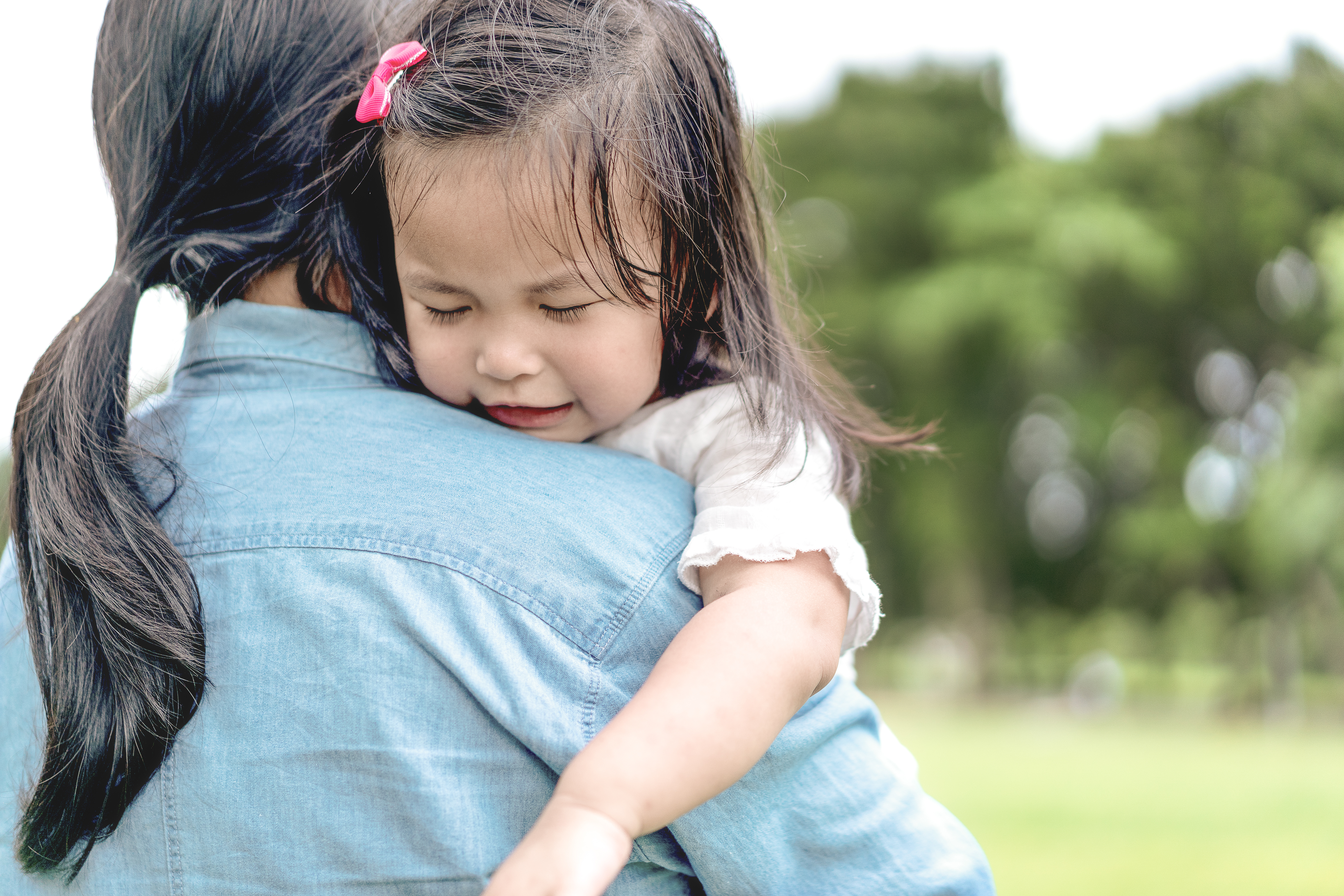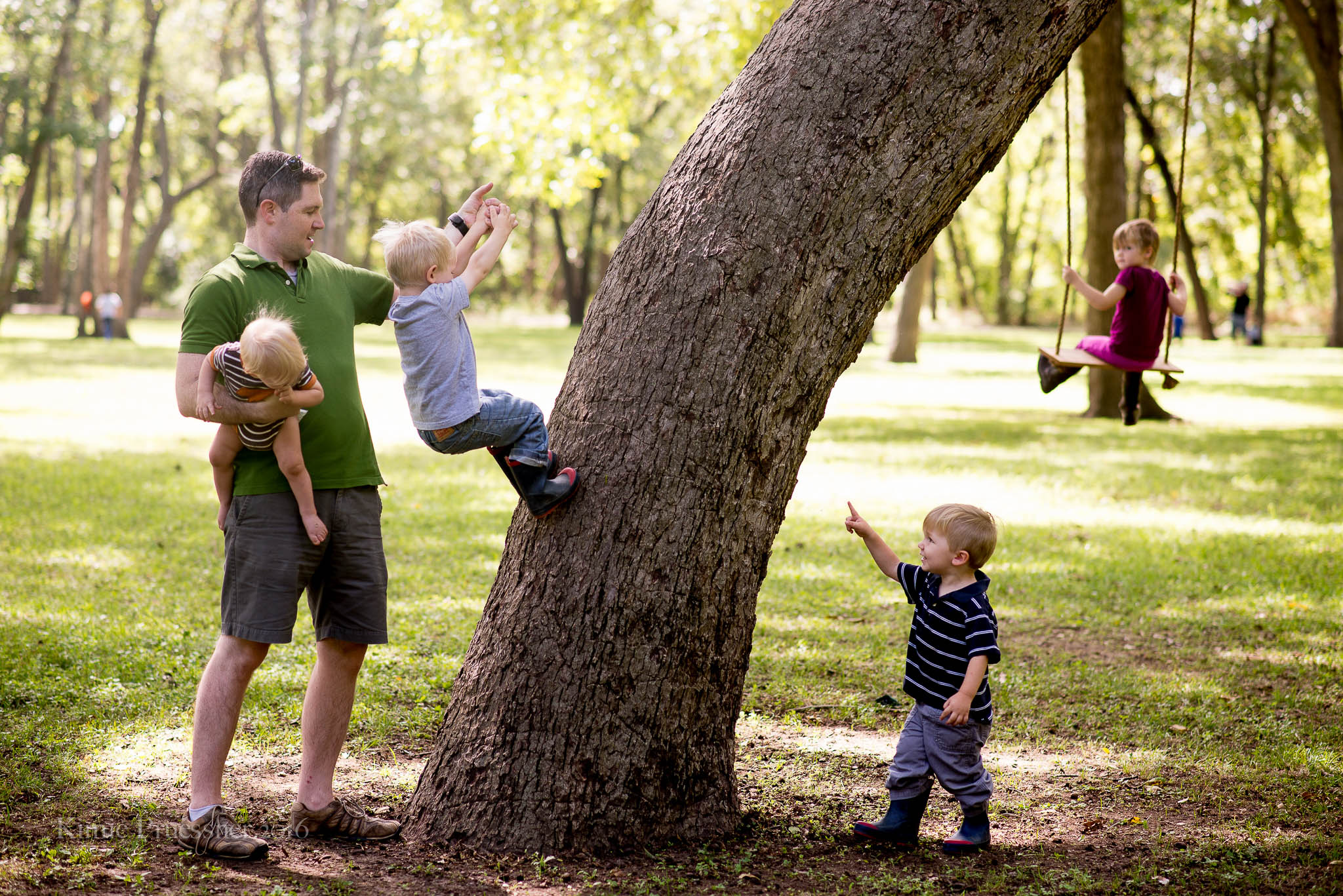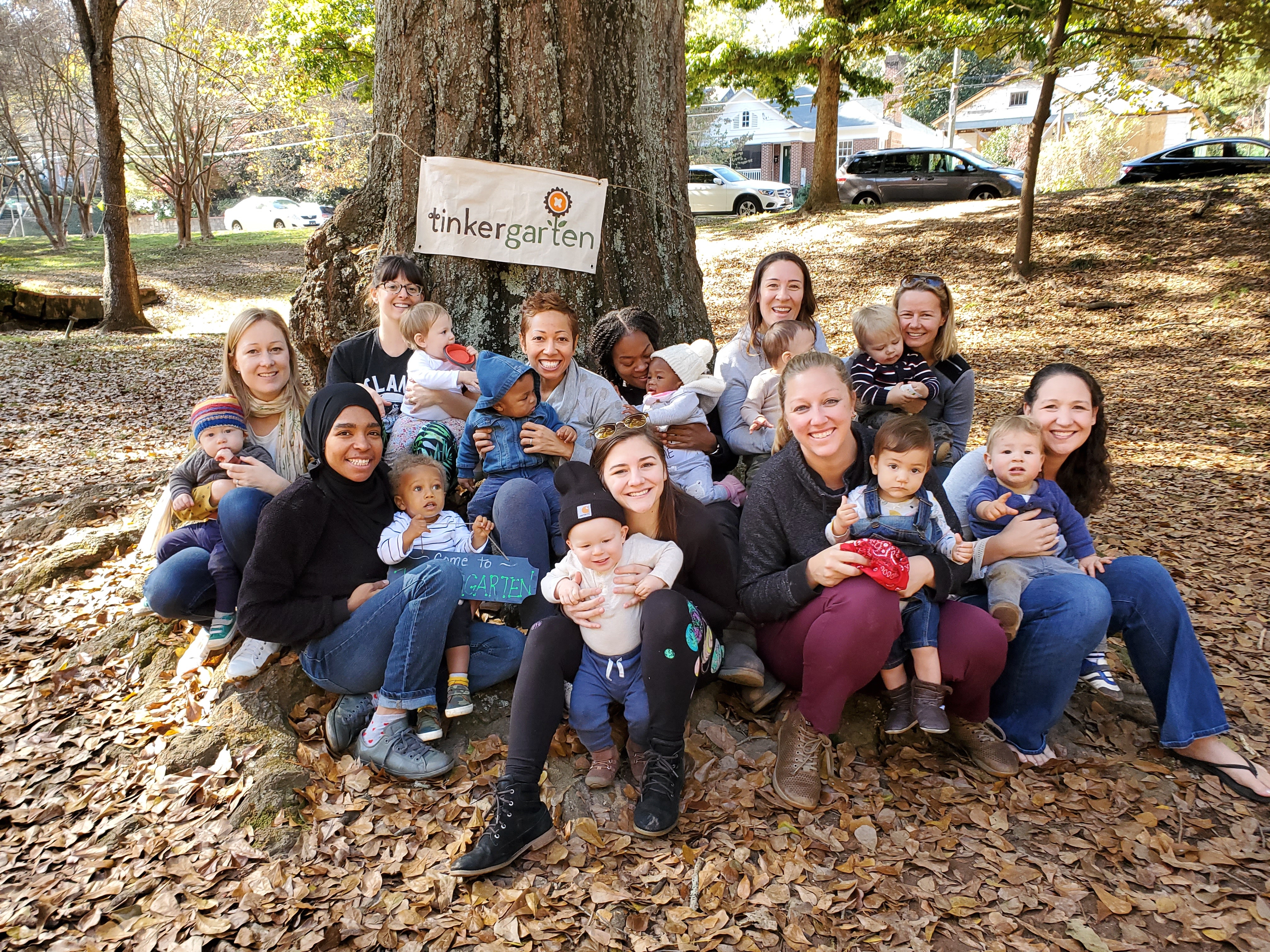The former math teacher in me cheered at the title of the NYTimes Parenting piece, Teach Your Kids to Fail. The mom in me agreed too, but also wanted a follow-up conversation just for the parents of young kids. What does it look like to let wee ones take risks and fail? And why does it feel so hard?
The article
I couldn’t agree more that learning to fail and see their mistakes as opportunities to learn makes kids more willing to try new things and better able to discover and grow. I believe in the importance of a “growth mindset”—the idea that our ability is not fixed or innate but, rather, expands as we learn from our experiences. This is supported by powerful research, and we see examples of it in classrooms all the time. I’ve taught kids who have been repeatedly told that they are “smart,” and I’ve seen them struggle to take chances and become devastated, shutting down when they miss the mark on a task.
The more we can focus with kids on their process vs. the product they create, or the more we can ask about the effort they put in vs. the results they produce, the more they’ll learn to adjust as a result of mistakes, and ultimately the more they’ll learn and grow.
What I still wanted
But I still want more when I think about parenting little kids. To be clear, it’s not at all hard to imagine how to instill a growth mindset in babies, toddlers and preschoolers. Early childhood is defined by a consistent and necessary set of failures. In order to reach milestones, young humans need to try things many, many times before they have success.
Somewhere during this time, though, kids start to get the message that success is good and failure is not as good, and that once-promising mindset can dissipate. Cultivating a lasting growth and failure-ready mindset starts in early childhood, and we adults play a key role in that process. But, how can we foster a “growth mindset” in the early years? What does that look like? Sound like? And, how can we all openly acknowledge that it might just be harder to do than it sounds when your babes are so small?
Harder than it sounds
Before any tips fly, I want to pause to honor that it can be really hard to watch wee ones fail, and sometimes, it’s hard to even let them try. To me, the Ellen Cantarow quote, later made famous by Steve Jobs, still makes me cry and cuts right to why it’s not so simple:
“Making the decision to have a child–it’s momentous. It is to decide forever to have your heart go walking around outside your body.”
Even though there are moments when they boil our blood, we are wired to love our kids fiercely and driven to do whatever it takes to keep them from harm. We literally hurt when they hurt, and it’s hard to let it happen.
And yet, we are mere guides.
Our little ones need the chance to become full people who can navigate the world without us, map their own journey with confidence, try the things that will lead them to their dreams, and learn to heal from wounds big and small. Kids desperately need to take risks, or they will never learn their own limits, leaving them less safe in the long run. They learn on the edge; brains engage when there is novelty, thrill, or even a little danger involved.
Hmm...sense a conflict? Man, it’s hard to walk the line between these two powerful and opposing forces.
Social and emotional development expert, Stanley Greenspan, asserts that finding the balance between over-engaging (à la helicopter parenting) andunder-engaging (i.e., missing this critical window) is the struggle that defines a person’s emotional development in the early years of parenting. In short, we all struggle with this—it’s part of raising little kids. And, even though I believe to my toes that my kids should scrape their knees and learn to emerge even stronger from failure, it's totally natural that I can’t always stop myself from trying to stop it from happening.
I'm so grateful for the community of teachers and parents with whom I'm growing up. You continually honor both sides of this challenge—reminding each other how important it is to allow our kids to try and fail while leaving judgment-free space for each of us to struggle to make that happen. Let’s keep it up, and try the ideas to follow with that same open, doing-the-best-we-can spirit!
Three things to focus on
Okay, so now what? Whenever something is hard, it gets much easier to break it into smaller parts and find chances for small wins. In that spirit, here are three, key places to focus as you support a growth mindset in little kids:
- Step aside and let kids take risks and struggle.
- Support frustration or disappointment when it inevitably comes.
- Praise kids' wins with care.
Letting kids take risks
Here are a few, simple ways to let kids take risks:
Remember the goal: Remember that the goal is to learn to manage risks vs. stay “safe.” So, as long as they are not in danger of getting hurt badly, they’ll learn and advance toward the goal.
Find your metaphor: I love swapping out “helicopter” for the “hummingbird parent”—you’re right there, hovering to ensure kids are safe, but doing so so quietly that you go largely undetected by your child. You can also be a co-player, playing alongside, indicating to your child that he/she has got this, while you keep an eye on whatever feels risky to you.
Give yourself an extra ten: When you feel the urge to intervene because something looks too hard or looks like it might lead to danger, give yourself an extra count to ten. That wait time can be all you need to really determine whether they’re in danger or just pushing themselves.
Celebrate “stretching:” Consciously decide to let kids try something you know they won’t be able to do. Whether it’s lifting a log that is heavier than they are or building a tower with the smallest block on the bottom (never ends well), step back and allow their process and the lesson that comes at the end. Words can help, too. From early on, when my kids were trying something extra-challenging, I’ve said things like, “you are really stretching yourself” or “this seems like a super stretch, I wonder what will happen?” My kids now say things like, “this one’s a stretch, mom” when they’re taking on a challenge, framing their own thinking in terms of the process, not the end result.
Redirect when you need to: If things are unsafe, try to understand the need that is driving their actions and find a different way to support that. Tinkergarten Leaders are amazing at this. If a child is throwing rocks or swinging a stick too wildly, it’s probably for great reason—these activities are joyful, satisfying, and actually teach us important lessons. But, they can lead to really painful endings. Work with kids to find safe ways to get the benefits they are looking for. Pick a target spot to which they can aim the rocks and make sure no friends are near there. Or, make a rule that sticks need LOTS of space when we swing them, and we can’t be near friends when we do.
Do better than “Be Careful” The words we choose are powerful teaching tools! If we choose words that prepare kids for a stretch, they will be safer and more prepared to grow from whatever happens. To follow are a few examples of how to do better than “Be careful.” To read the whole list, read our full post.
- Be Careful! → Slow, strong steps, there, Ivy.
- Be Careful! → What is your plan for how to come down from the tree, Maeve?
- Be Careful! → Let me know if you want some teamwork. Lifting that heavy rock is a super stretch, Will!
Supporting frustration and disappointment
Remember the goal. Disappointment is inevitable, so we want to teach kids how to experience disappointment, move through it, and come out wiser. Although not fool-proof, keeping the goal top of mind can help us turn down the volume on the parent love that rushes to try and take the pain away.
Being with the fall out: One of the most important ways to manage disappointment is to learn to be with it. Let kids feel the sadness and frustration that comes with disappointment. That doesn’t mean indulge it, just acknowledge it once, keeping completely calm. “I can see you are really disappointed that the tower fell. I know how that feels.” So validating.
Listen and stay by their side. Just listen, stay still and allow kids to express their feelings, staying calm and right there, but just allowing them the chance to pass through it. When they are ready to try again, they’ll let us know. A wonderful picture book for learning to be responsive in the moment is Rabbit Listened by Cori Doerrfeld.
Model failing ourselves: When we try something new or something that is hard for us, or when we try something and it doesn't work out the way we had hoped, we can share out loud how we feel about that and how we work through it. Even if we struggle to let kids fail, we can lean into our own failure!
Reflect together: When kids are ready to try again, reflect on what they may have learned by asking things like, “What happened the last time you tried to build a tower? Remember when you fell on the wall? What do you think happened? Or What could you try this time that is different?”
This can look quite different with babies and toddlers, as, early on, kids are not able to reflect on what happened in the past, and they may need to repeat the same “mistake” or experiment several times before internalizing and applying something they have learned. That doesn’t mean you can’t sportscast or narrate a bit about what you noticed, though. “Ivy, I noticed that you walked fast last time, and you fell down when you started to go really fast.” Just make sure you see that as exposing them to something you noticed, and keep from holding them accountable to apply that wisdom just yet!
Praising their wins
Science and life experience both tell us that we humans respond to praise. And, praise is a powerful teaching tool as a result.
Praising effort over identity: It can feel subtle, but it’s pretty easy to make statements that reinforce a fixed-mindset—a mindset grounded in the idea that we are born with a fixed set of talents and abilities. When you tell kids that they are smart, clever, or talented, they start to take on a fixed mindset, and they start to require success of themselves in order to preserve that sense of “I am smart” or “I am talented.” Instead, we can praise kids’ process and effort. We can say things like “You worked hard on this, didn’t you?” or “What a clever way to approach the problem!” These two focus on the effort a child put in and praise the approach vs the approacher.
Avoid over-praise: I struggle with this one the most. I truly find the little victories and efforts of children, especially my own three, to be thrilling. So, I can risk over-praising. But, if we praise small efforts as if they are huge, we risk undermining our praise and, effectively lowering the bar for kids. But, kids know what efforts are big vs. small, and if you over-praise, your words start to mean less. And, you can get kids hooked on praise and pleasing you, when we really want them motivated by their own desire to learn, discover, and make their mark on the world.
Let kids know where they can improve: Part of having a growth mindset is knowing that we are not the best at everything–and man, is that a helpful concept to bring with you as you grow! If you notice an area in which a child can improve on something, don’t be afraid to mention it. Just use questions so they are curious instead of discouraged. Say things like, “Did you want to add some more to the picture. What else could you add?” or “How do you think we can make our next tower stand up even longer? Or stretch even higher?”
Geek out on the research: I find the evolving research on praise and its impact fascinating, especially in our culture which values praising so. Some recent, interesting posts:
- Parenting Science: The effects of praise
- Quartz: A caveat on “growth mindset”
- NY Magazine: How Not to Talk to Your Kids
- Frontiers in Psychology: Effects of Ability and Effort Praise on Children’s Failure Attribution, Self-Handicapping, and Performance
We get to grow, too!
Finally, give YOURSELF the chance to have a growth mindset. I came into parenting thinking, as an educator, I’d have this gig nailed. I cannot imagine a more humbling journey. We’re each going to fail in order to learn. Find your community and the knowledgeable others who can be there alongside you as you walk this wonderful, challenging walk. It’s made all the difference for me!


